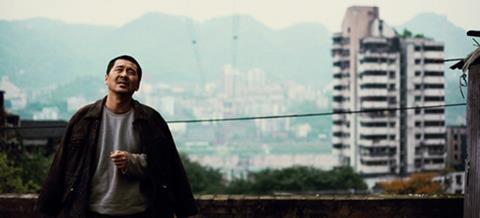Dir: Cai Shangjun. China. 2011. 91mins

A far cry from Cai Shangjun’s award-winning debut The Red Awn, this follow-up, screened as the Surprise Film in the Venice competition, lacks the warmly humane approach of his predecessor, offering instead a grim, unflattering portrait of the Guizhou Province in South-Western China, one of the wilder and less developed parts of the country.
The mine sequences, towards the end, would easily suggest a descent into hell out of which there is no escape.
Shaped like a Western revenge movie about a man who goes out on a thousand miles trek to chase his brother’s killer, People Mountain People Sea (Ren Shan Ren Hai) is based on a real incident which took place a couple of years ago. But unlike classic Westerns, Cai’s muddled narrative is never easy to follow and his social observations rather than his narrative skills or psychological insights, that might generate interest in his film, though it would require very patient audiences to sit through it till the end. The film was the Surprise offering at the Venice Film Festival.
Back in his home village after a 10 year stay the big city, Lao Tie (Chen Jianbin) finds out his brother has been murdered by an ex-con, Xiao (Wu Xiubo), and though the police had identified the murderer, they were unable to apprehend him on time and now he is gone, no one knows where.
Driven by instinct rather than by some profound sense of justice, Tie sets out to do the job of the police and find the culprit, which in Chinese terms is like finding a needle in a haystack. A friend from the city, who turns out to be a drug addict and a pusher to boot, promises to help but fails. He gets in trouble with the police and the only way out is a hefty bribe which the representative of the law pockets without batting an eye.
A short visit to his former girlfriend, Tian (Tao Hong) starts with a violent rape followed by Tie’s first encounter with the son they had together, presently living with a foster family since the girl has now a new companion. The rumor that Xiao may be hiding in an illegal mine, drives Tie all the way to the north of the province. When found, Xiao threatens to blow the mine up but before he can do it, he is beaten to death by the other miners. Left without a purpose in life, Tie is now the one who sneaks a lighter into the mine and puts an end to himself and everyone around him.
Trying to make sense of the plot beyond its aforementioned highlights is devilishly complicated, since there are no pointers indicating why Tie would go one way and not another, no evidence of a search beyond random questioning that leads nowhere and motivations are evidently considered unnecessary at all times.
More interesting is the portrait of a violent and amoral society in shambles, a chaotic system which often leaves justice in the hands of individuals for lack of more effective means, with ineffective and sometime corrupt police, with a drab present and unpromising future, with no driving purpose and no inspiring ideals, briefly, the opposite of everything the communist regime used to promise its subjects once. The mine sequences, towards the end, would easily suggest a descent into hell out of which there is no escape.
As for the title, it is the English version of a Chinese expression referring to a gathering of many people together. It may not sound like proper English but it is no doubt suggestive enough.
Production companies: Sunrise Media Corporation
International Sales: Cai Shangjun, caishangjun@yahoo.com.cn
Producers: Li Xudong
Screenplay: Gu Xiaobai, Cai Shangjun, Gu Zhang
Cinematography: Dong Jinsong
Editor: Yang Hongyu
Production designer: Zhai Tao, Jin Yang
Music: Zhou Jiaojiao
Main cast: Chen Jianbin, Tao Hong, Wu Xiubo















![[L-R]: Amanda Villavieja, Laia Casanovas, Yasmina Praderas](https://d1nslcd7m2225b.cloudfront.net/Pictures/274x183/6/4/1/1471641_pxl_20251224_103354743_618426_crop.jpg)





